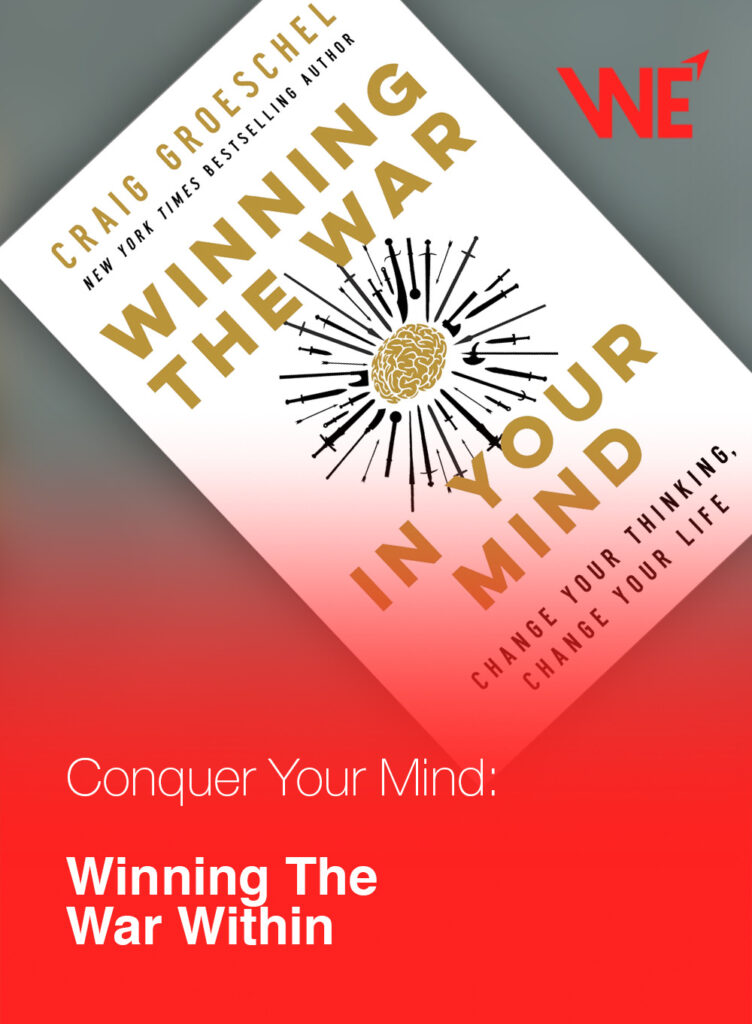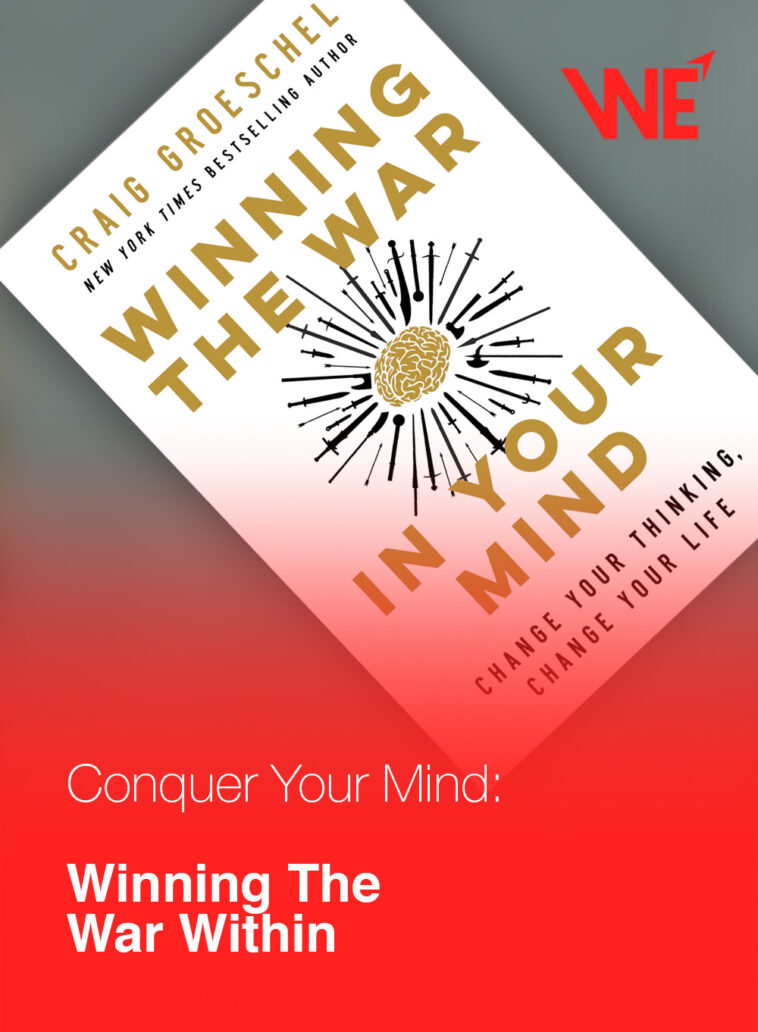
Many of us struggle with self-defeating thoughts and narratives. We become entangled in a relentless mental battle, hampering our ability to thrive. Fortunately, in his enlightening book ”Winning the War in Your Mind,” Craig Groeschel provides practical strategies to conquer these destructive thought patterns, using findings rooted in theology and neuroscience.
Turning the Tides of Your Thought War
Groeschel argues that we often fall victim to false narratives or ’bad thinking patterns.’ These self-limiting beliefs can profoundly affect our mental health and overall well-being. However, neuroscience research supports the notion that our brains have the remarkable ability to reshape themselves. This concept, known as neuroplasticity, means we can effectively rewire our brain’s networks, shifting our thoughts from negative to positive patterns.
A study by Aronson et al. (2016) demonstrated that consistent positive thinking and affirmations can enhance cognitive functioning and problem-solving skills. It’s a transformative concept echoed in Groeschel’s book. He provides practical steps to recognize these false narratives, challenge them, and eventually replace them with more accurate and life-giving stories.
Harnessing the Power of Visualization
In addition to altering our thinking patterns, Groeschel encourages using visualization as a tool to ’see’ our desired future. A study by Kosslyn, Ganis & Thompson (2001) found that visualization activates the same neural networks as physical execution, providing a powerful means for us to mold our future realities.
Groeschel suggests that we must consistently ’see’ the narrative we want to live, allowing our brains to form new, beneficial connections. As these connections strengthen over time, our desired thoughts and behaviors become more habitual, ultimately aiding us in winning the mental war.
The Power of Confession
Groeschel also explores the healing power of confession, acknowledging one’s mistakes and seeking redemption. While confession is deeply rooted in religious traditions, recent research has highlighted its psychological benefits. For instance, a study by Pouria (2017) revealed that confession can alleviate guilt and improve psychological well-being.
Winning the War in Your Mind posits that by confessing our erroneous thoughts, we disempower them and open ourselves up to accepting the truth and embracing change.
Cultivating Resilience
Groeschel elaborates on resilience – the ability to bounce back from adversity – as a key strategy to win the mental war. He posits that building resilience is akin to strengthening a muscle; it requires consistent practice and challenge.
Scientific studies have shown a strong correlation between resilience and positive mental health outcomes. According to a study by Southwick et al. (2014), resilient individuals tend to harbor fewer anxiety and depression symptoms and have a higher life satisfaction score. By embracing difficulties as opportunities for growth, we can foster resilience, empowering us to combat destructive thought patterns effectively.
Mindfulness and Mental Clarity
Lastly, Groeschel champions the practice of mindfulness as a tool for mental clarity and tranquility. Mindfulness involves being fully present in the moment, acknowledging and accepting our thoughts and feelings without judgment.
This notion has gained significant traction in the realm of psychology. A meta-analysis by Khoury et al. (2015) found that mindfulness-based therapies have proven effective in reducing symptoms of various psychological disorders, including anxiety and depression. By practicing mindfulness, we can attain a greater sense of peace, equipping us with the mental clarity to win our internal war.
Essentially, ”Winning the War in Your Mind” provides an invaluable guide to overcoming self-defeating thoughts and transforming our mental landscape. It integrates theological insights with empirical findings, presenting a comprehensive approach to nurturing our mental well-being. Whether we’re caught in the throes of a mental skirmish or seeking to bolster our mind’s defenses, this book offers strategic counsel to emerge victorious in the battlefield of the mind.
References:
- Aronson, J., Fried, C.B., & Good, C. (2002). Reducing the effects of stereotype threat on African American college students by shaping theories of intelligence. Journal of Experimental Social Psychology, 38, 113–125.
- Kosslyn, S. M., Ganis, G., & Thompson, W. L. (2001). Neural foundations of imagery. Nature Reviews Neuroscience, 2(9), 635–642.
- Pouria, A. (2017). The Psychology of Confession: Why We Confess. Psychology Today.
- Southwick, S. M., Bonanno, G. A., Masten, A. S., Panter-Brick, C., & Yehuda, R. (2014). Resilience definitions, theory, and challenges: interdisciplinary perspectives. European Journal of Psychotraumatology, 5(1).
- Khoury, B., Lecomte, T., Fortin, G., Masse, M., Therien, P., Bouchard, V., … & Hofmann, S. G. (2013). Mindfulness-based therapy: a comprehensive meta-analysis. Clinical Psychology Review, 33(6), 763-771.

